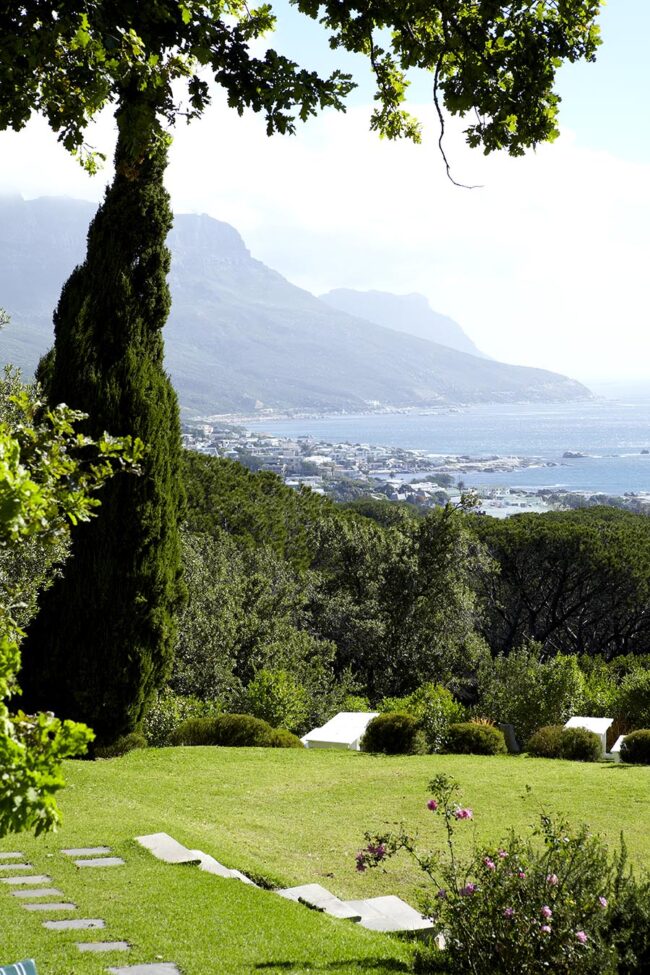
The Roundhouse restaurant, Camps Bay. © Frank Features
At first glance, the city of Cape Town at the southernmost tip of Africa is more a large village than a bustling metropolis with a national park at its heart and an historic and largely low-rise city centre that you can walk with ease. Surrounded by genteel neighbourhoods and beautiful beaches that seem to genuflect towards the city’s iconic Table Mountain, the city’s beloved mountain that is an astonishing six times older than Mount Everest in the Himalayas, and five times older than the Rockies.
Colonized by the Dutch in 1652, the city has a historic fabric unparalleled in the rest of the country with the gardens of the Cape of Good Hope (that exist to this day) once the sole supply of fresh fruit and vegetables to the trading ships that travelled from Holland to Java. These early cultural and economic exchanges, along with its Mediterranean climate and enviable lifestyle, have influenced the city’s sense of universality, making it a natural hub for the creative industries.
Pic caption: The Lawns at The Roundhouse in Camps Bay is where locals go for relaxed all-day picnic lunches in the gardens and because it’s a wind-free zone in summer.
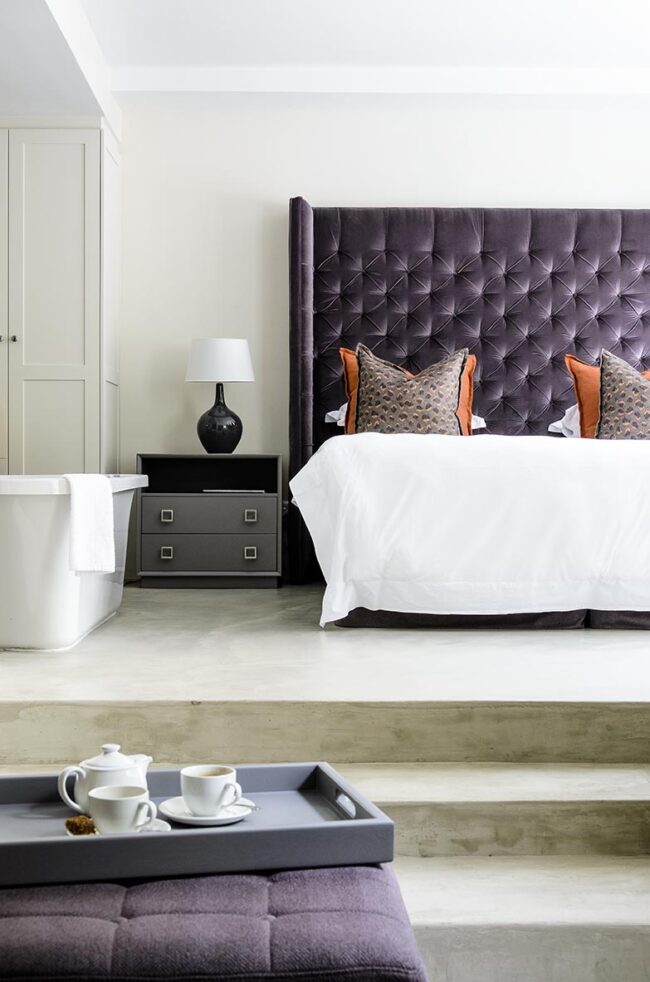
Cape Cadogan, boutique hotel, Union Street, Gardens, CBD. © Frank Features
SLEEP
Babylonstoren this historic fruit and wine farm in the Franschhoek valley some 40 minutes outside Cape Town is an extraordinary not-to-be-missed farmstay hotel where five-star contemporary country accommodation set within acres of cultivated fruit and vegetable gardens. www.babylonstoren.com
The Mount Nelson Once home to Winston Churchill, the Nelly as she has been a Cape Town institution for well over 100 years. And with good reason – guests return here time and again for the sumptuous afternoon teas, the seriously comfortable old-world glamour of the suites and the sweeping nine-acre gardens complete with two pools, two tennis courts and the best views of Table Mountain. Whether you’re staying in the white villa-style Green Park wing or the Victorian Sydenham cottage that come with their own ‘Adults Only’ Pool, your every whim is guaranteed to be met. And we’re not even talking about the hotel’s two restaurants and every popular bar. www.belmond.com
Cape Cadogan gets our vote for being within walking distance of the city and the surrounding Kloof street shops but still sufficiently removed from the more touristy areas. Known for its intimate atmosphere (they serve cocktails and canapes every evening in the lounge), stellar service (their concierge will get you in just about everywhere) and the classic yet contemporary interiors, this boutique hotel has long been the choice of those in the know. With eight deluxe and four luxury suites all housed within an original Georgian farmhouse that is also a National Monument, your stay will be marked by an attention to detail and a level of comfort that is typical of a family-owned hotel. And for those who prefer a more independent stay, try one of the hotel’s six street apartments located within walking distance too, or the Owner’s Villa for absolute privacy. www.capecadogan.co.za
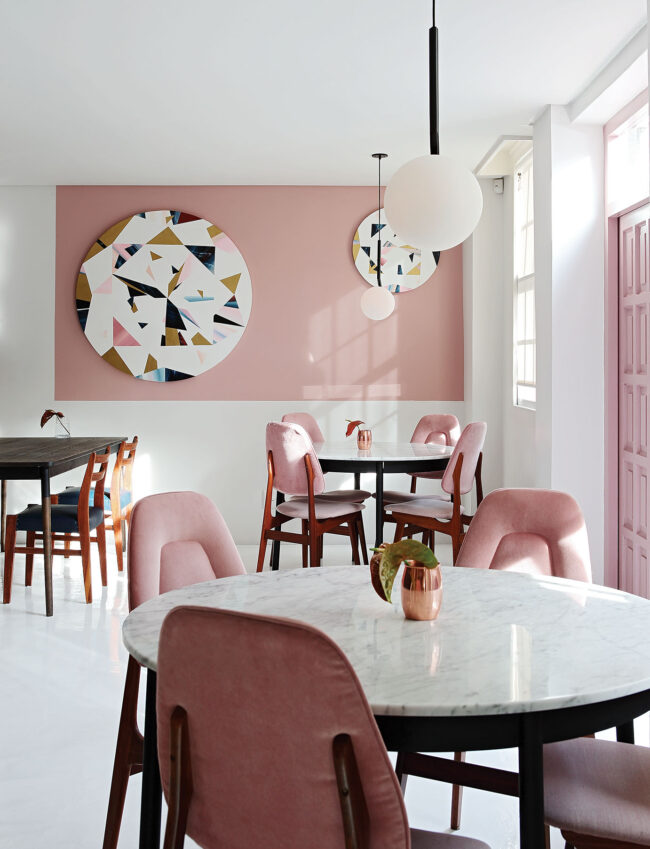
Mulberry and Prince restaurant. © Frank Features
EAT
In the last decade Cape Town has experienced a gastronomic renaissance with a plethora of food markets, artisanal stores, delicatessens, restaurants, cafes, cocktail bars and breweries popping up. So much so, in 2016, the city was named as the ‘Best Food City in the World’ by Conde Nast Traveler readers who cited a ‘breezy simplicity’ to the city’s iconic eating experiences as a major point of difference. But then Cape Town’s long history with food began more than 350 years ago when the city supplied passing ships from the Dutch East India Company with fresh meat, fruit and vegetables. It’s a tradition emulated today with a network of organic and artisanal suppliers all over the city that offer a wide range of locally produced meat, fish, cheese, fresh produce, beer and wine.
While South Africans are very much a meat-loving nation with plenty of grass-fed beef, organic lamb, wild venison and ostrich, in recent years the city’s dining landscape has changed to be more reflective of the city’s myriad cultural influences that paired with local ingredients has created an altogether new taste sensation in the city that has had adventurous foodies the world over flocking here in droves. The winelands are no less impressive, with everything from spicy curries to seafood paellas, fish tacos and tapas, to poke bowls and dim sum, as well as excellent vegetarian restaurants and eateries on offer.
SHOPPING
The city’s dynamic design industry translates to great shopping. For cutting-edge fashion, head to Merchant’s on Long for pieces from South Africa’s new guard of designers Laduma Ngxokolo, Sindiso Khumalo, Thebe Magugu, Nicholas Hlobo and many more. Or Kluk CGDT on Bree St for pret-a-porter and bridalwear. When it comes to one-off design pieces and furniture, don’t leave town without visiting Southern Guild (southernguild.co.za) who represent artists and designers like Porkey Hefer, Andile Dyalvane, Atang Tshikare, Justine Mahoney and more. As well as James Mudge (jamesmudge.co.za), Wiid Design (wiiddesign.co.za) and Chandler House (chandlerhouse.co.za).
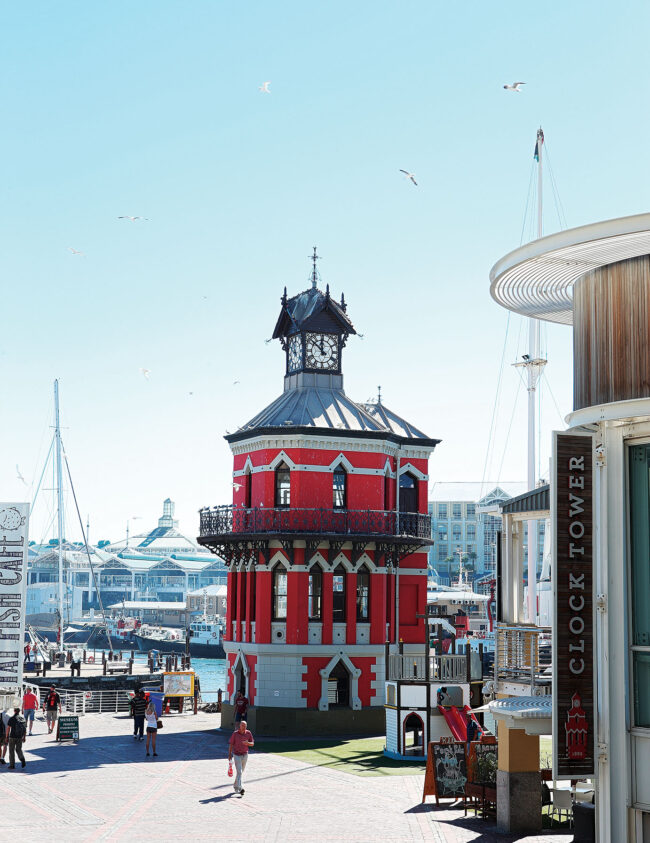
Built in 1882, the Victorian-style Clock Tower is an icon of the old Cape Town Harbour and was originally the Port Captain’s office. © Frank Features
DISCOVER
Did you know that Cape Town has hosted The Design Indaba Conference, one of the world’s most enduring and diverse design conferences for 25 years? This annual three-day think tank draws a powerhouse of design activists and creatives that transforms the city into a buzz of art exhibitions, film festivals, design awards and fringe events that seek to inspire and create dialogue within the global creative community. Cape Town also blazed a trail as World Design Capital in 2014, and in 2017 was the first African city to be named as an UNESCO City of Design. That same year, the Zeitz Museum of Contemporary Art Africa (Zeitz MOCAA) opened its doors, a significant first for the city with the appointment of Cameroonian-born Koyo Kouoh as the Chief Curator. With 80 galleries, the Zeitz MOCAA is the first museum on the continent dedicated to African contemporary art, as such it is here that you will discover the leading global collection of contemporary art from Africa and the diaspora. In 2018, another world-class art museum opened in the city, this time the Norval Foundation, a center for art and cultural expression that is dedicated to the research and exhibition of 20th and 21st century visual art from South Africa and beyond.
This City Guide originally appeared in the sixth issue of MOYI.
Text: Kerryn Fischer / Frank Features
Photos: Frank Features
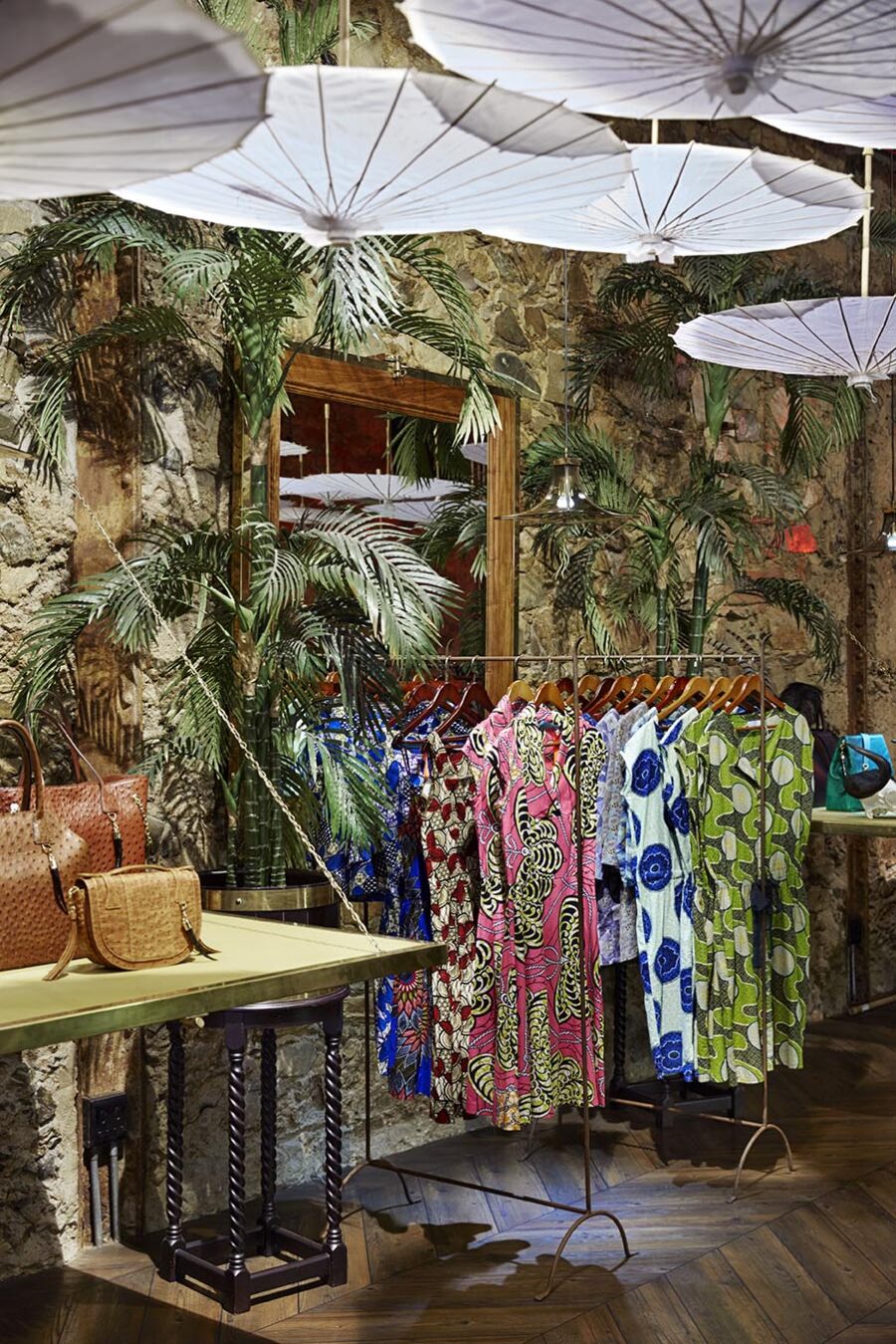
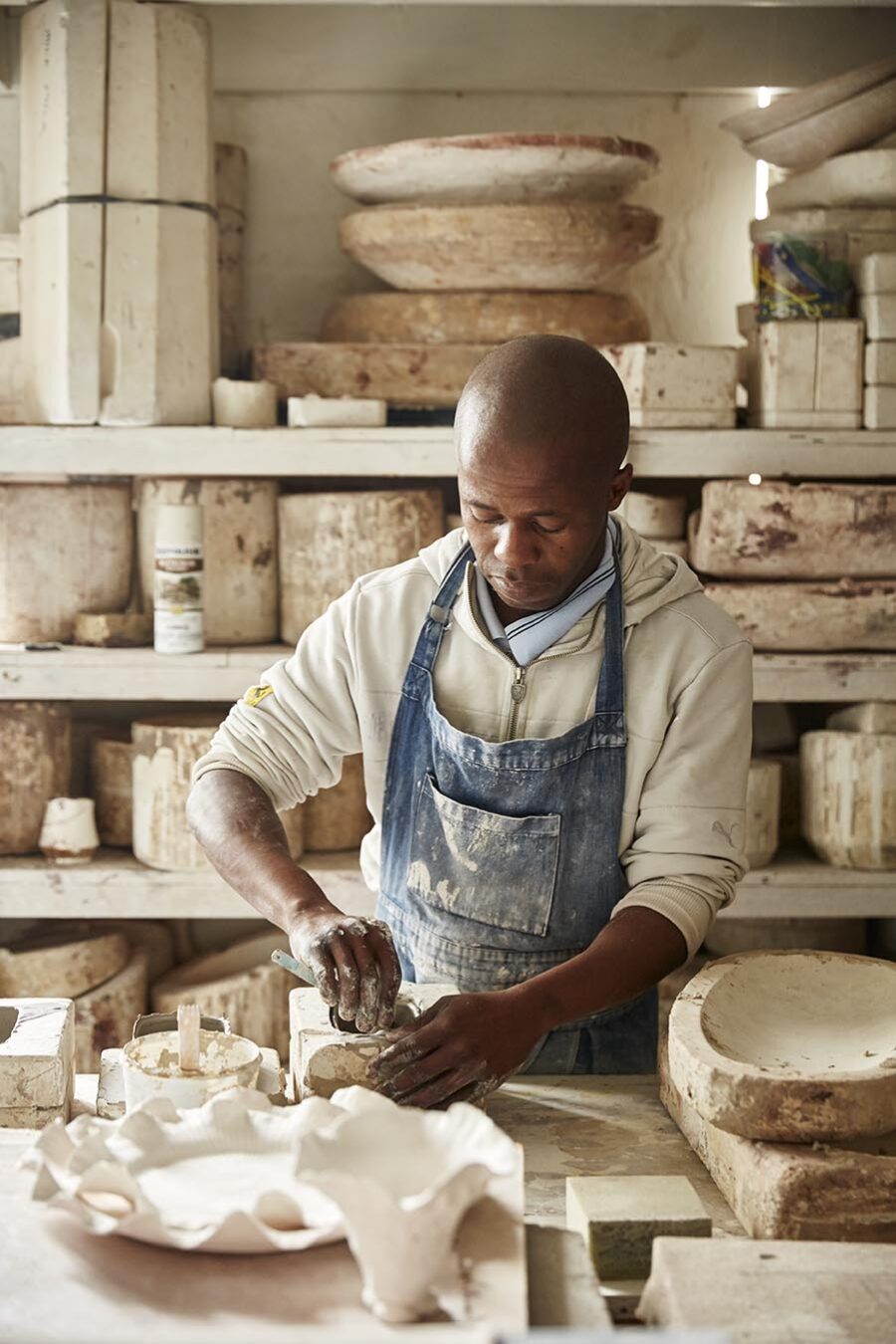
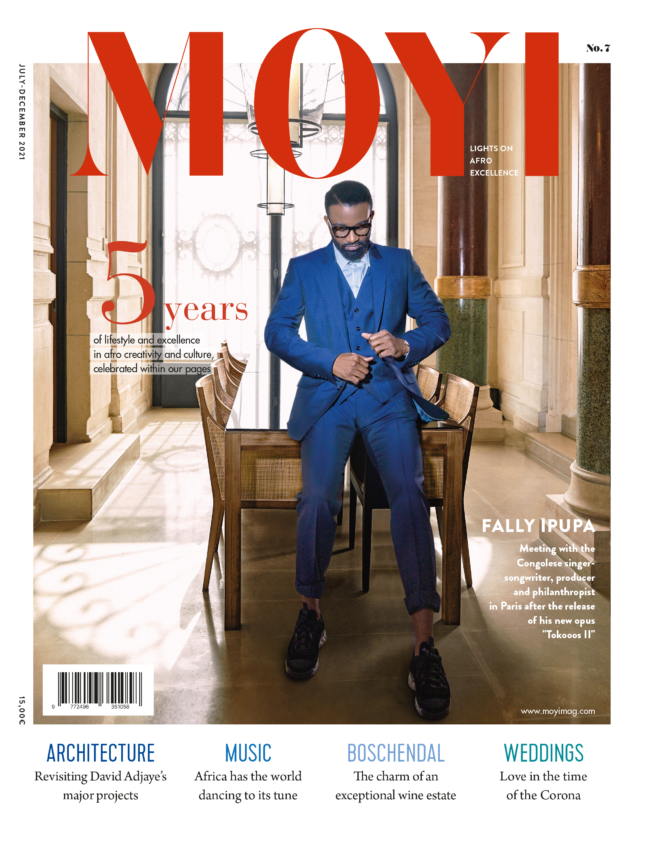 buy a print or digital issue
buy a print or digital issue
